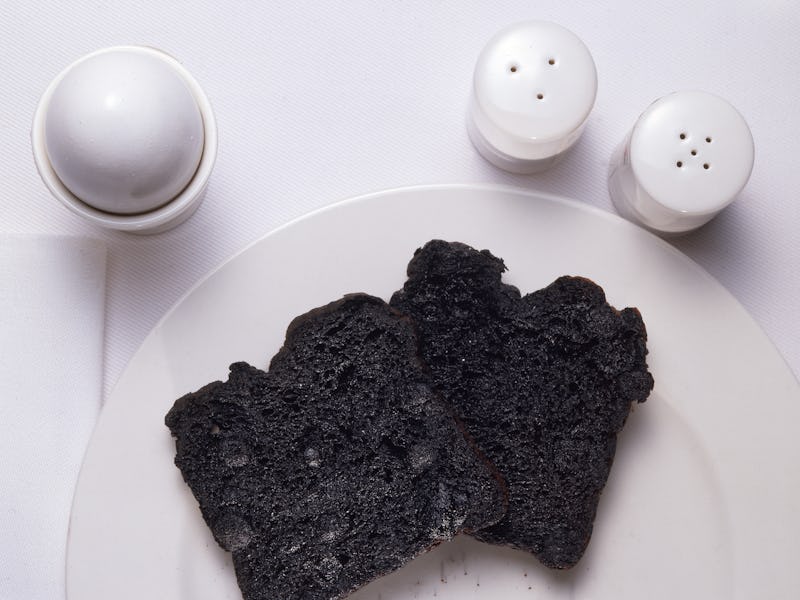Crispy Fries, Burnt Toast Lovers Called Out by Cancer Alarmists

Savvy eaters know that the burnt bits are often the tastiest. Unfortunately, those bits might also be the most carcinogenic. In the United Kingdom, a new campaign called “Go For Gold” advises home chefs to cook their starchy foods to a golden color — not to charbroiled black — to reduce the production of acrylamide, a chemical byproduct that’s been linked to cancer. Not all scientists, however, agree with the campaign’s takeaway message.
The campaign warns lovers of blackened roast potatoes, burnt-to-a-crisp toast, and heavily roasted coffee to rethink their diets. “The scientific consensus is that acrylamide has the potential to cause cancer in humans,” the UK Food Standards Agency website states, noting that the level of acrylamide consumption among consumers is higher than desirable. However, as Sir David Spiegelhalter of the University of Cambridge’s Winton Centre for Risk and Evidence Communication noted in a response to the campaign, there isn’t any concrete evidence that acrylamide exposure will cause harm in humans. The evidence that the Go For Gold campaign is based on is drawn from studies carried out on mice.
Burnt potatoes will definitely give you cancer, if you are a mouse.
It is known that the Maillard reaction — the process by which cooking gives the sugars in food their appetizing brown color and flavor — can produce acrylamide when it is carried out on starchy foods at temperatures higher than 120 degrees. Its production can be minimized by first blanching potatoes before they’re cooked or decreasing cooking time altogether, the U.S. National Cancer Institute notes. But when it’s consumed by animals, this compound is converted to a chemical called glycidamide, which sticks to DNA in the nucleus of cells and causes mutations. As a result, the animals’ risk for several types of cancer escalates.
What Spiegelhalter points out, however, is that these findings can’t be applied directly to people. Just as the results of great ape psychology don’t necessarily translate to human behavior, stating that there’s a direct link between our consumption of burnt toast and cancer risk just because it’s been shown in mice isn’t exactly a valid claim. The International Agency for Research on Cancer, for one, considers acrylamide to be only a “probable human carcinogen” — this puts it in the same category as red meat — and Cancer Research UK states that “At the moment, there is no strong evidence linking acrylamide and cancer.”
Still, avoiding even potentially risky foods until they’re proven to be otherwise won’t hurt anyone but the most particular eaters. After all, surely the flavor of a golden brown potato wedge or slice of toast is more palatable than the taste increased cancer risk would leave in your mouth.